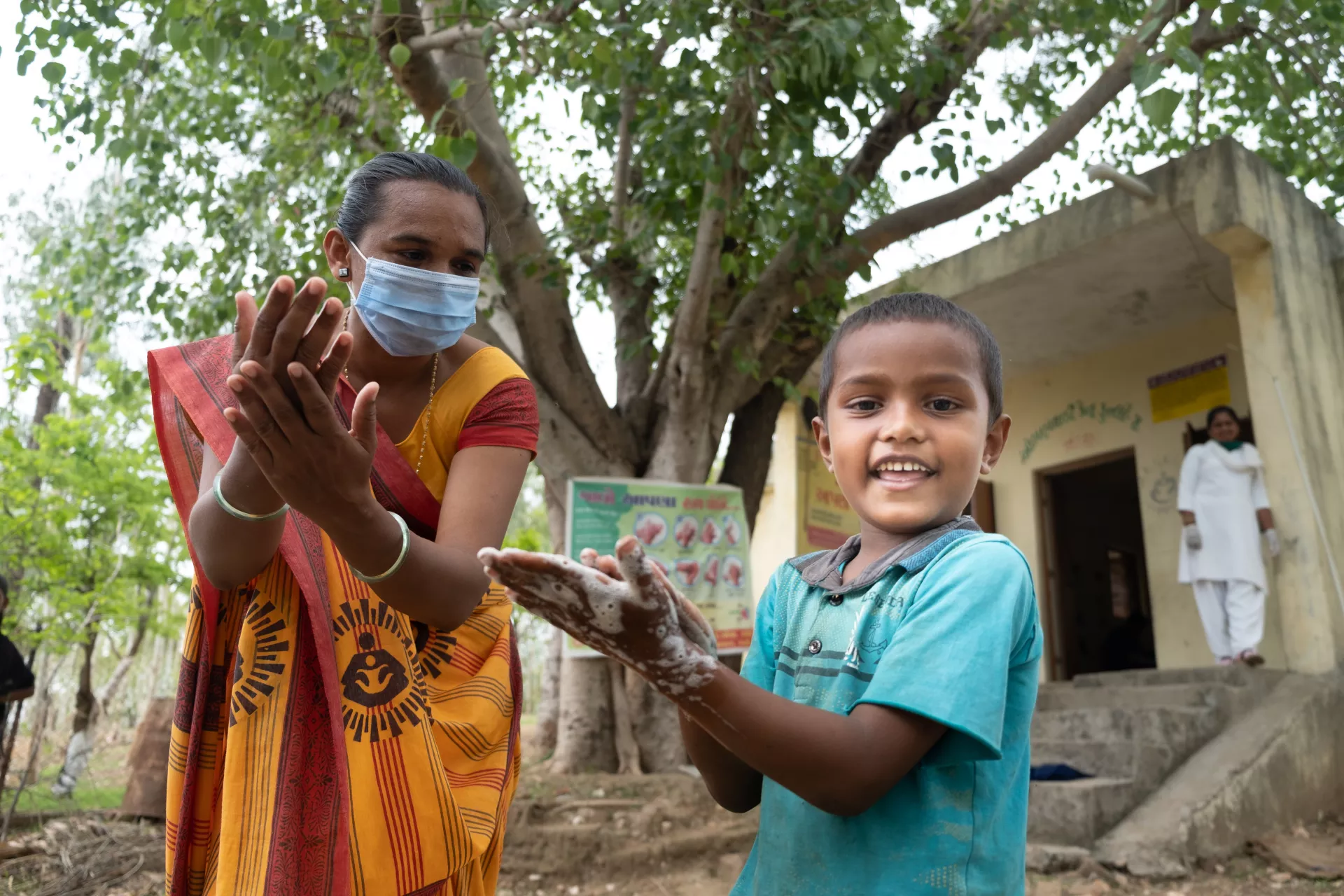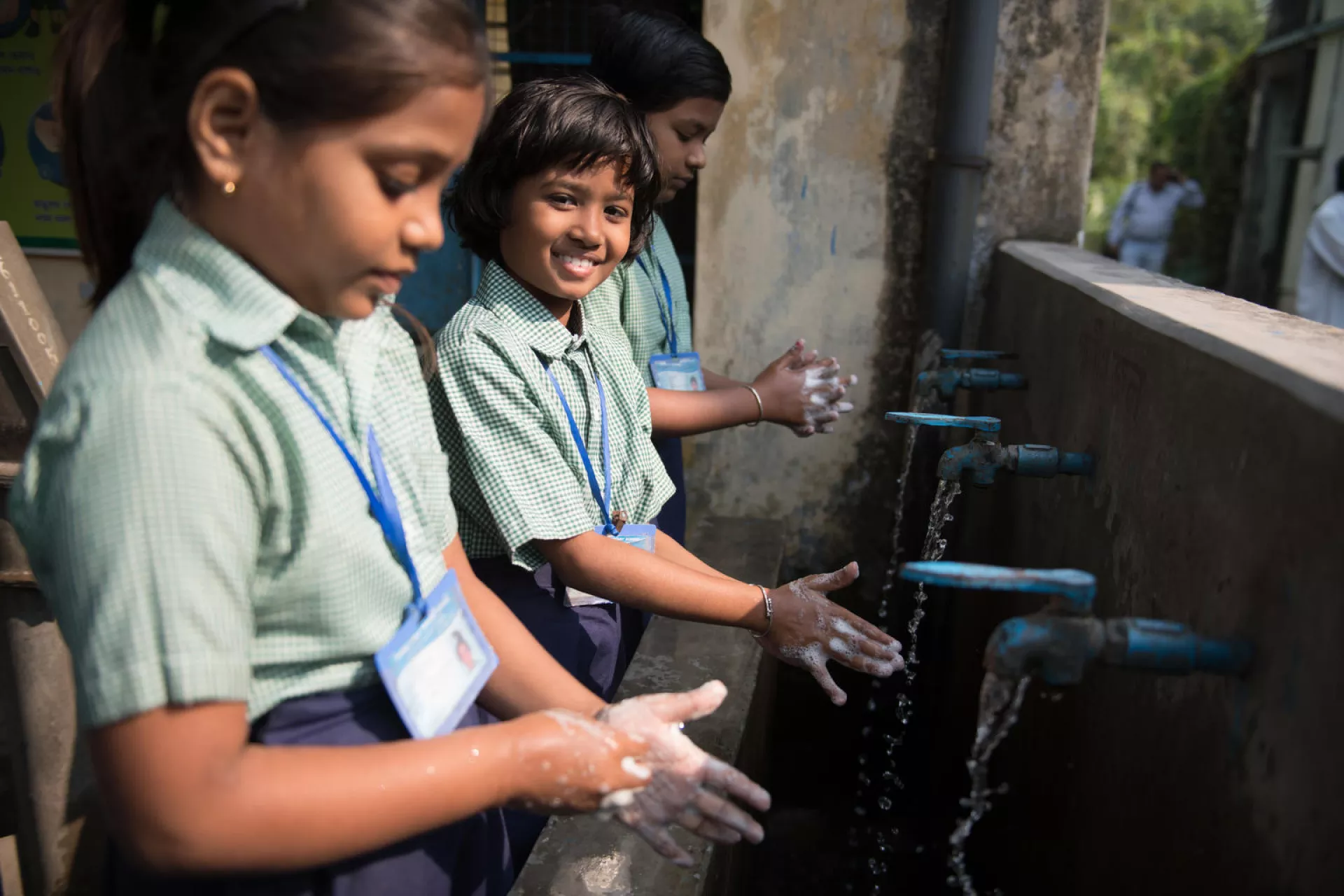The Importance of Handwashing: Building Healthy Habits in Children
Blog by Sonali Khan, Managing Director, Sesame Workshop India
 (Pic Credit: UNICEF)
(Pic Credit: UNICEF)
Handwashing is one of the simplest yet most effective ways to prevent the spread of germs and protect against diseases. Handwashing is the first line of defense against the spread of infectious diseases like colds, flu, and diarrhoea. According to the World Health Organization (WHO), proper hand hygiene can reduce the incidence of respiratory infections by 21% and gastrointestinal infections by up to 31%. For children, who are more susceptible to germs due to their developing immune systems, regular handwashing is critical in preventing illness and absenteeism from school. Messaging on handwashing has been at an all-time high since 2020, specifically in the pandemic years, but the need to continue is even higher to address young children and their hygiene habits. The earlier children are introduced to handwashing, the more likely they are to adopt it as a lifelong habit. Handwashing not only protects children from immediate health risks but also has long-term benefits. Children who regularly wash their hands are less likely to miss school due to illness, leading to better educational outcomes. According to the World Health Organization (WHO), school-based handwashing programs can reduce absenteeism by up to 20% (India Today).
In India, where access to clean water and sanitation can be limited, promoting handwashing is particularly important. The Swachh Bharat Abhiyan (Clean India Mission) has made significant strides in improving sanitation facilities across the country, but continued education and awareness are needed to ensure that children develop good hygiene habits.
 (Pic Credit: UNICEF)
(Pic Credit: UNICEF)
As caregivers and educators, teaching children the importance of handwashing not only safeguards their health but also instils lifelong habits that can benefit them and those around them. Here are some strategies to help build healthy handwashing habits in children:
-
Explain the Science Behind Handwashing
- Why It Matters: Children are naturally curious, and explaining how germs spread and why washing hands with soap is crucial can help them understand the importance. Use simple language and visuals to demonstrate how germs are invisible yet powerful in causing sickness.
- Impact on Health: Highlight that regular handwashing can prevent illnesses like the common cold, flu, and even more serious infections. Diarrheal diseases, which are largely preventable through proper handwashing, are one of the leading causes of death among children under five in India. According to UNICEF, proper handwashing can reduce the incidence of diarrheal diseases by up to 40% (T20 India) (UNICEF).
-
Make Handwashing Fun
- Songs and Rhymes: Incorporate localised and fun songs or rhymes that children can sing while washing their hands. The Ministry of Health and Family Welfare in India recommends that handwashing should last at least 20 seconds, which can be timed perfectly with a catchy tune. This not only makes the process enjoyable but ensures they wash for the correct duration.
- Interactive Tools: Use apps like Chalo! Sesame Street or videos on Sesame Workshop India – YouTube channel with beloved characters Elmo and Chamki to engage children in learning proper handwashing techniques. These characters can guide children through the steps in an entertaining way, making the habit more likely to stick.
-
Demonstrate Proper Handwashing Techniques
- Step-by-Step Guide: Show children the correct steps for washing hands—wetting, applying soap, scrubbing all parts of the hands (including under nails and between fingers), rinsing, and drying. Practice together to reinforce the routine.
- Role Models: Children learn by observing adults. Make sure parents, teachers, and caregivers consistently model proper handwashing techniques. This sets a positive example and reinforces the importance of the practice.
-
Create a Handwashing Routine
- Consistency is Key: Establish specific times for handwashing, such as before meals, after using the bathroom, and after playing outside. Consistent routines help children remember when to wash their hands and make it a regular part of their day.
- Visual Reminders: Place colourful posters or stickers in bathrooms and kitchens as reminders to wash hands. Visual cues can be effective in prompting children to remember to wash their hands regularly.
-
Integrate Handwashing into Educational Activities
- Storytelling: Incorporate handwashing into stories or role-playing games where characters face challenges related to hygiene. This can make the lesson more relatable and memorable.
- Science Experiments: Conduct simple STEM based experiments, like using glitter to represent germs and showing how washing with soap removes it effectively. Hands-on activities make the learning process more impactful and engaging.
-
Reward and Encourage
- Celebrate Milestones: Celebrate when children consistently remember to wash their hands. Recognizing their efforts helps reinforce the behaviour and encourages them to continue.
- Positive Reinforcement: Use a reward system to encourage regular handwashing. Stickers, smileys, praise, or small treats can motivate children to keep up the habit. Over time, the habit will become second nature even without rewards.
-
Educate About Global and Local Health
- Broader Impact: Teach children about the local and global importance of handwashing and how it helps prevent the spread of diseases around their communities and in the world. helps children understand that their actions can help prevent the spread of illnesses within their community cultivating empathy and a sense of responsibility.
- Awareness Days: Participate in local and global hygiene and handwashing events, such as Swachta Pakhwada, Monthly ECCE Days, Global Handwashing Day on October 15th. Engage children, parents and educators in activities and discussions about why handwashing matters not just for them, but for everyone.
-
Adapt for Different Ages
- Tailored Approaches: Customize the handwashing message and methods depending on the child’s age. Younger children may benefit from more playful, interactive methods, while older children can understand more from STEM based activities.
- Building Independence: Encourage older children to take responsibility for their own handwashing, fostering independence and accountability for their hygiene
With these strategies, the simple act of handwashing becomes a powerful tool in building a healthier future for our children and communities. By making handwashing a fun, educational, and consistent part of daily life, we can help children develop healthy habits that will protect them throughout their lives. By teaching children the importance of handwashing and helping them develop this habit early on, we are not only protecting them from immediate health risks but also instilling a practice that will benefit them throughout their lives.
 (Pic Credit: UNICEF)
(Pic Credit: UNICEF)
At Sesame Workshop India, we believe in empowering children and caregivers with the knowledge and skills to take care of themselves and others. We are committed to promoting healthy habits like handwashing through our educational content and programs in multiple states in India. Through engaging educational content and community outreach, we aim to make handwashing a fun and integral part of every child's day, helping to build a brighter, healthier future for all.
